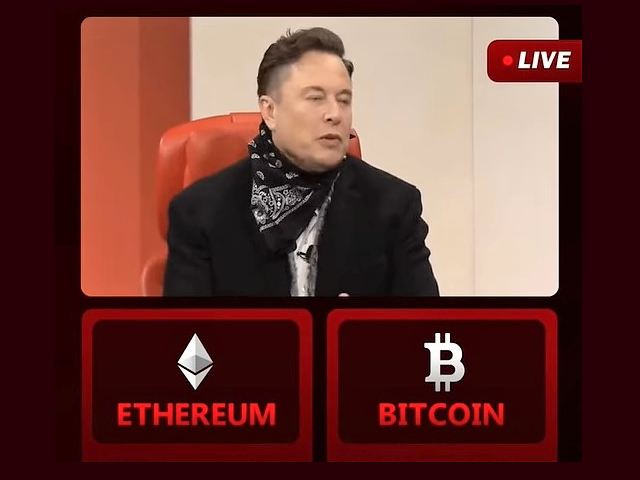YouTube plagued by fake Elon Musk bitcoin giveaway videos
Scammers use old clips of Elon Musk talking about cryptocurrency

Videos promoting fake cryptocurrency giveaways have been attracting tens of thousands of live views on YouTube.
The scams involve phony endorsements from high-profile tech figures like Elon Musk that encourage viewers to send bitcoin (BTC), Ethereum (ETH) and other cryptocurrencies to an anonymous address.
In return, victims are promised that they will receive double whatever they send, though no cryptocurrency is ever sent back.
The videos typically attract between 3,000 and 10,000 concurrent viewers, with one video seen by The Independent receiving more than 20,000 live views on Thursday.
The video, which was live for more than two hours, used an old clip of Mr Musk talking about bitcoin at a conference last year in an effort to make the crypto giveaway look legitimate.

People watching the video, which appeared as a ‘Watch Next’ suggestion on the video-sharing platform, were directed to a website that claimed to be running a 5,000BTC giveaway.
“Hurry up and take part in the giveaway,” the site stated. “We believe that blockchain and bitcoin will make the world more fair. To speed up the process of cryptocurrency mass adoption, we decided to run 5,000BTC giveaway.”
YouTube did not respond to a request for comment from The Independent by the time of publication.

Similar crypto-based scams have appeared on other online platforms in recent years, most notably Twitter.
As a prominent bitcoin advocate, Mr Musk is frequently the target of scammers, who imitate the Tesla CEO’s profile pic and user name in an attempt to fool people into sending cryptocurrency to an address.
“Troll/ bot networks on Twitter are a *dire* problem for adversely affecting public discourse and ripping people off,” he tweeted in 2020, adding, “This is not cool.”
Cryptocurrency addresses analysed by The Independent in 2018 found that scammers had raised hundreds of thousands of dollars by posing as the tech billionaire.
More than 400 people sent bitcoin to a criminal address in one campaign, with some victims sending as much as $6,000.
Join our commenting forum
Join thought-provoking conversations, follow other Independent readers and see their replies
Comments
Bookmark popover
Removed from bookmarks